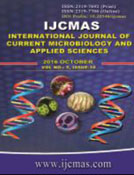
 . In west Africa, cassava fermented food found are Gari, Attiéké, Placali, Lafun and efubo, Kokondé, Agbelima, Loi-loi, Attoupkou, Dumby, Abacha, Kapok pogari, Bêdêkouma. The associate or involved microorganisms include, Lactobacillus, Leuconostoc, Lactococcus, Enterococcus as lactic acid bacteria and Bacillus. Yeast and moulds found are mainly Candida, Pichia, Hanseniaspora, Trichosporon, Geotrichum, Zygosaccharomyces, Saccharomyces, Kluyveromyces,as yeasts, Aspergillus, Penicillium, Mucor, Rhizopus as moulds. The biochemical compounds produce during fermentation include folates, several organic acids volatiles organics compound and others compounds. Cassava fermented food preservation, the starch functional increase, aroma and flavour enhancement, anti-nutrients reduction as well as cyanogen reduction as known as the impact of the fermentation process. The health benefit of cassava fermented foods concern their nutritional value, probiotics properties and their contribution to human immune system increase. Cassava fermented food are still produce in artisanal way and don’t allow their nutritional values standardisation." />
. In west Africa, cassava fermented food found are Gari, Attiéké, Placali, Lafun and efubo, Kokondé, Agbelima, Loi-loi, Attoupkou, Dumby, Abacha, Kapok pogari, Bêdêkouma. The associate or involved microorganisms include, Lactobacillus, Leuconostoc, Lactococcus, Enterococcus as lactic acid bacteria and Bacillus. Yeast and moulds found are mainly Candida, Pichia, Hanseniaspora, Trichosporon, Geotrichum, Zygosaccharomyces, Saccharomyces, Kluyveromyces,as yeasts, Aspergillus, Penicillium, Mucor, Rhizopus as moulds. The biochemical compounds produce during fermentation include folates, several organic acids volatiles organics compound and others compounds. Cassava fermented food preservation, the starch functional increase, aroma and flavour enhancement, anti-nutrients reduction as well as cyanogen reduction as known as the impact of the fermentation process. The health benefit of cassava fermented foods concern their nutritional value, probiotics properties and their contribution to human immune system increase. Cassava fermented food are still produce in artisanal way and don’t allow their nutritional values standardisation." />


 National Academy of Agricultural Sciences (NAAS)
National Academy of Agricultural Sciences (NAAS)

|
PRINT ISSN : 2319-7692
Online ISSN : 2319-7706 Issues : 12 per year Publisher : Excellent Publishers Email : editorijcmas@gmail.com / submit@ijcmas.com Editor-in-chief: Dr.M.Prakash Index Copernicus ICV 2018: 95.39 NAAS RATING 2020: 5.38 |
Cassava fermented food have a long story in Africa. There are consumed decades ago. Some cassava fermented food as gari are largely spread in the continent. Every part of the African communities has developed their own process to ferment and use cassava. Ubuswage, Imikembe, Ikivunde, Inyange, ivunde, Mokopa are known as East African cassava fermented food when Chikwangue, Meduame-M-bong, cossette are known as Central Africa speciality . In west Africa, cassava fermented food found are Gari, Attiéké, Placali, Lafun and efubo, Kokondé, Agbelima, Loi-loi, Attoupkou, Dumby, Abacha, Kapok pogari, Bêdêkouma. The associate or involved microorganisms include, Lactobacillus, Leuconostoc, Lactococcus, Enterococcus as lactic acid bacteria and Bacillus. Yeast and moulds found are mainly Candida, Pichia, Hanseniaspora, Trichosporon, Geotrichum, Zygosaccharomyces, Saccharomyces, Kluyveromyces,as yeasts, Aspergillus, Penicillium, Mucor, Rhizopus as moulds. The biochemical compounds produce during fermentation include folates, several organic acids volatiles organics compound and others compounds. Cassava fermented food preservation, the starch functional increase, aroma and flavour enhancement, anti-nutrients reduction as well as cyanogen reduction as known as the impact of the fermentation process. The health benefit of cassava fermented foods concern their nutritional value, probiotics properties and their contribution to human immune system increase. Cassava fermented food are still produce in artisanal way and don’t allow their nutritional values standardisation.
. In west Africa, cassava fermented food found are Gari, Attiéké, Placali, Lafun and efubo, Kokondé, Agbelima, Loi-loi, Attoupkou, Dumby, Abacha, Kapok pogari, Bêdêkouma. The associate or involved microorganisms include, Lactobacillus, Leuconostoc, Lactococcus, Enterococcus as lactic acid bacteria and Bacillus. Yeast and moulds found are mainly Candida, Pichia, Hanseniaspora, Trichosporon, Geotrichum, Zygosaccharomyces, Saccharomyces, Kluyveromyces,as yeasts, Aspergillus, Penicillium, Mucor, Rhizopus as moulds. The biochemical compounds produce during fermentation include folates, several organic acids volatiles organics compound and others compounds. Cassava fermented food preservation, the starch functional increase, aroma and flavour enhancement, anti-nutrients reduction as well as cyanogen reduction as known as the impact of the fermentation process. The health benefit of cassava fermented foods concern their nutritional value, probiotics properties and their contribution to human immune system increase. Cassava fermented food are still produce in artisanal way and don’t allow their nutritional values standardisation.
 |
 |
 |
 |
 |